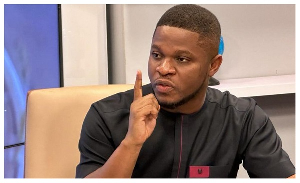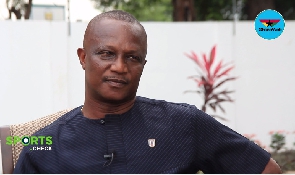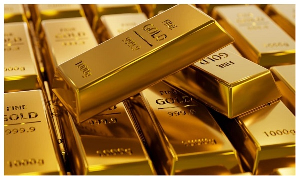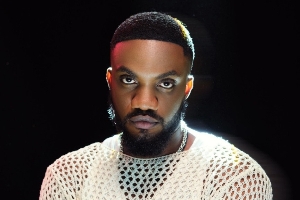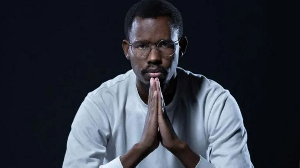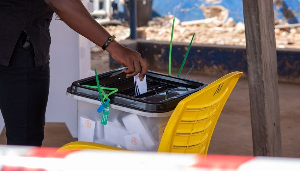In the last little while various people have expressed their opinions or reservations to the name of our country Ghana. Some like Maulvi Ameer Adam, head of the Ahmidiyya Moslem Mission, is quoted as saying the name Ghana descended from Arabic word Ghinaa that embodies the attributes of gold and great wealth etc. so it is a good name.
On the other hand is Prophet Moses Growther who claims ? ?Dr. Nkrumah brought a curse on the nation when he adopted the name Ghana, which had already been associated with evil spirits from the then, Ghana Empire in Southern Sudan to replace the first name of the land, "Gold Coast."
You know your country is in trouble when people of all shades of opinion and religion begin to ascribe religious connotation to the meaning of your country name. Some juxtapose a mere change of the name or maintenance thereof would bode very well for the prospects of the country.
Is the name Ghana our proper name and true reflection of who we are; our heritage, destiny or a misnomer? I hope the following discourse would put the matter to rest.
Gold Coast, What Gold Coast?
First the name Gold Coast was our slave-colonial name given to us by the Whites. It has nothing more to it than to define us by what they thought was useful about us: Gold. They could have equally called us Cocoa Coast, Slave Coast or Slavennia as we were equally famous in those departments.
A Nation is born: Tell tale signs of the origin of our name
The founding fathers, Dr. JB Danquah in particular and Dr. Kwame Nkrumah chose Ghana the name for the country after a thorough study of origins, culture and history of the peoples of Ghana. Dr. Danquah plucked the name from ancient Ghana that had its capital at present day Wagadugu (Ouagadougou). The name Ghana actually pertained to the title of the king of Wagadugu and the operative word here is embodied in the word Ga. The town Wagadugu has the same name as Wa in present day Ghana. The dugu end of the word means grand or tall, just like Asaman and Asamankese or Mampong and Mampongten. So Wagadugu means big grand or greater Wa whereas the Wa in Ghana is the smaller town. It is fashionable for towns in the area to end with Ga just like the Akans would say Krom or kro for town. So in the same area we have towns like Gamba-ga, Pa-ga, Bol-ga-tanga, and Pusi-ga etc. I can go on but that would be unnecessary.
The Na prefix in Gha-na is what you might find as the title of kings and chiefs of the tribes in the area like Ya-Na, Bole-Na, or Na-Na (grandfather's father) as the Akans would say. In the olden days one could not become a king or chief if he could not trace his roots up the family tree to the original Nana who brought them to their current abode. That is the import when somebody throws the gauntlet and challenges you to name or tell him about your Nana. In this instance if you were an Akan you should be able to trace your roots back to the North. The word Akan means nothing more than first people. First as in (Adi-akanfo) to enter the forest jungle from the Savannah north.
So Ghana (pronounced Gana) as we know it today is the combination of two words Gha-Na, as you would say Ya-Na. It has nothing to do with Arabic or a curse so Ameer Maulvi Adam and Mr. Moses Growther should stop distorting facts and history. Our name Ghana has its origin from the Mandingo-Mossi-Wangara?Gourma-Dioula-tribes who are the remnants of the people of Ancient Ghana not Arabic. In fact it has a closer meaning to Guinea than Ghinaa wherever that came from.
All of the peoples and tribes of Ghana except the Gas and Ewes came from the four-state area of Burkina Faso, Ivory Coast, Mali and Guinea. We originated from the Niger-Volta rivers basin. A travel across the region would reveal to you how much we share in common with them in terms of oral history, customs, culture and pre-Islamic practices if you could remove the veneer of Islam.
Meaning of the name Ghana
Something for all to ponder about. If "GA" as in Wagadugu, Paga, Pusiga, Gambaga and Bolgatanga means town or land and "NA" means king or chief isn?t the real meaning of Ghana like King?s town (Kingston) or Na?s land? Think about it. Is the term Ghana not like Ahenkro in Akan parlance?
The term Gana or Ghana in the language of the people of ancient Ghana meant Ahenkro, Omanhene, Wura or Overlord depending upon the context. In fact it most parallel Ya Na in the Dagarti language today.
Technically Ghana and Togo means the same. Togo was derived from the corruption of the word Togbe (i.e. Ewe for Nana) as in Togbeland through Togoland to Togo. Ghana could in the same sense have started as Nanaland, and finally Gana or Ghana.
All the tribal groupings in Ghana use one form or the other a variant of the word NA or NANA to refer to a chief or old people except perhaps the Ewes. In its many forms it takes the shape and sound bite of Nana, Nene, Naaba, Naa, Nii, Nee or NA.
We are in fact the NA people and Gana or Ghana our name (which literally and loosely translates into Nana?s land or Na?s town or Naaba?s country) is very well deserved, ascribed and placed; not an accident, Arabic or a curse.
We are the direct descendants of the people of Old Ghana Empire and our body politic covers the landscape of today?s Ghana, Ivory Coast and Burkina Faso. If Nkrumah and others had not taken the name Ghana I am certain the Ivory Coast would have wasted no time in adopting it as they too can equally lay claim to that name. The Ivory Coast has to about 75% the same tribal composition and linguistic groups like our Ghana. We are in fact a twin or one body politic sliced into two by the blue eye devils who came to colonize us.
What portent danger reversal to Gold Cost could hold for country?
Given all the political upheavals going on in the West Africa Region with particular reference to the Ivory Coast (another colonial white label) it would in fact be a tragedy and a case for brewing trouble to reverse to the name Gold Coast. Gold Coast strictly referred to the British coastal colony made up of Western, Central and Eastern Regions. That is why we have a central region at the coast instead of where Brong Ahafo is.
To readopt the name Gold Coast would inadvertently estrange the peoples north of the Prah River and minimize or marginalize their true contribution to the entity or character called Ghana. It would resurrect the trauma of suspicion, animosity, name callings and apathy that existed between and amongst the people. This division that Nkrumah in his infinite wisdom fought and worked so hard to heal and knit into a seamless one unitary country; defeating the separatist or secessionist federalist parties of his days, would all come to naught and haunt us.
Dr. Kwame Nkrumah was so wise and ahead of his time he even changed the name Trans Volta Togoland to just Volta Region, so that the people of that region would not look eastward over the border, politically and subconsciously, to their kit and kin in Togo and refer to themselves as Voltaians, and not Togolese of some sort . He did this to blunt and snuff out the secessionist tendencies ingrained in the Trans Volta Togoland Peoples Party that existed at the time in the Volta Region. He also broke up Ashanti into Ashanti and Brong Ahafo Regions to downsize the political weightiness of the home of the matemeho movement under the guise of political decentralization and administrative convenience.
It is this dichotomy that we saw in the politics of the early days before and immediately after independence that is talked about as the separatists (matemeho) politics of yesteryears. The CPP was championed by the original Gold Coasters whereas the NLM and later the UP (union of NLM and Northern Peoples Party) was dominated by the people of British protectorate territories north of the Prah River. We have just about crossed the Rubicon (the Prah River) with the election of Kufour, notwithstanding the brief period of Dr. Busia, which excluded the CPP from participating in the politics of the day, and Dr Hilla Limann both of whose terms were cut short by military adventurers.
The nation is reconciled and at peace with itself now. Any reversal to the name Gold Coast or otherwise may unearth a genie we might not be able to encapsulate again. Ghana is beautiful, let?s keep it like that. Any reversal to the Gold Coast would in fact accentuate and unleash the tectonic political destructive forces that have manifested itself in coups simply because the people vote largely along tribal lines depending on who is the presidential candidate for which political party.
The case of our twin state, the Ivory Coast, and lessons to be learned thereof
In the Ivory Coast the Northerners there have never felt they are accepted as equal partners in the politics of that country. The southern coastal dominated parties have pursued politics of what is called Ivoirit? which looks down suspiciously at the northern indigenes as not proper Ivorians and therefore cannot aspire to become president of that country. It is so bad, in certain circumstances, if you are a Northern Ivorian you cannot own land because you are thought of to be of Burkinabe extraction than a true 100% thoroughbred Ivorian. Your case is even further damaged if you have a Moslem name. Can you imagine a Ghana where the people north of the Prah River are treated as not true Ghanaians? Trouble that is what these loose talkers and confidence tricksters calling for a name change to Gold Coast are asking for.
Dr. Kwame Nkrumah of blessed memory did a lot to unite our country that others today are trying hard every means to drive a wedge into because they are either in government or not in government anymore or just plain stupid, misguided and mischievous. We will never know the true value of our precious country until those of us in the name of politics or stupid name changes would crush it for ever. That day the founding fathers would turn in their graves. Let?s pray we never live to see that day. God bless Ghana. Long live Ghana our Na(na) land.










